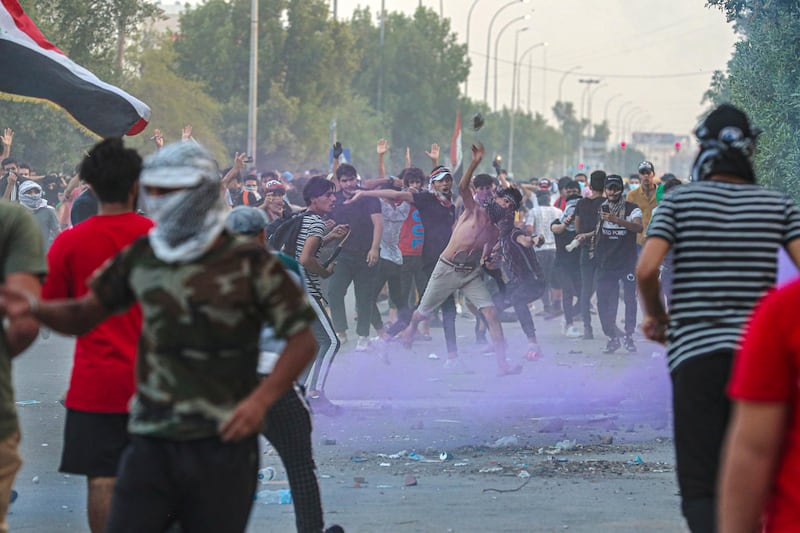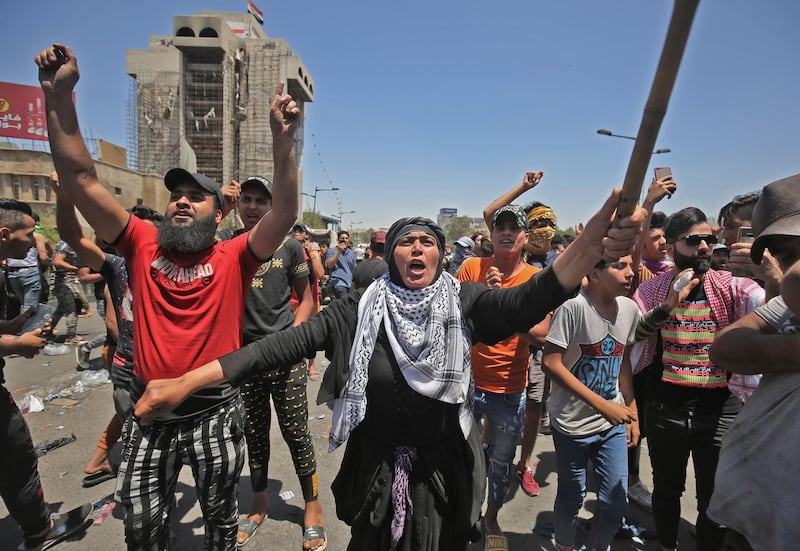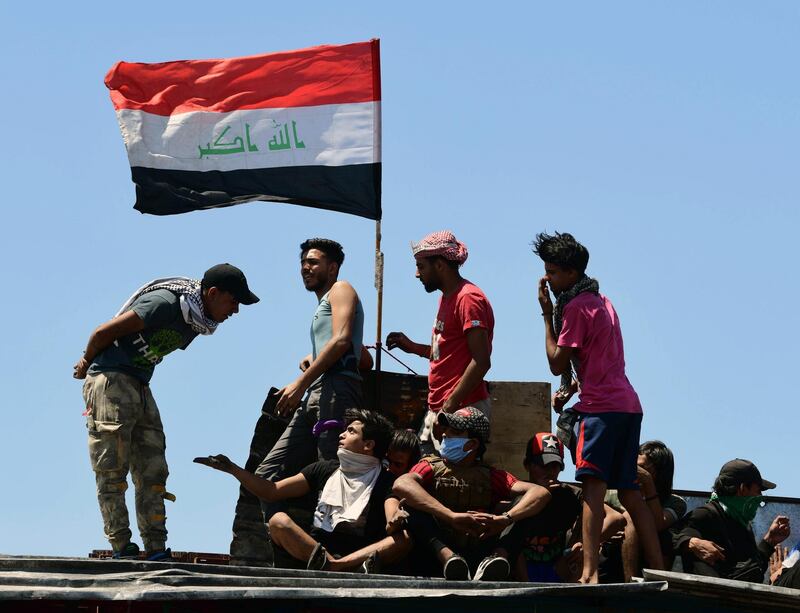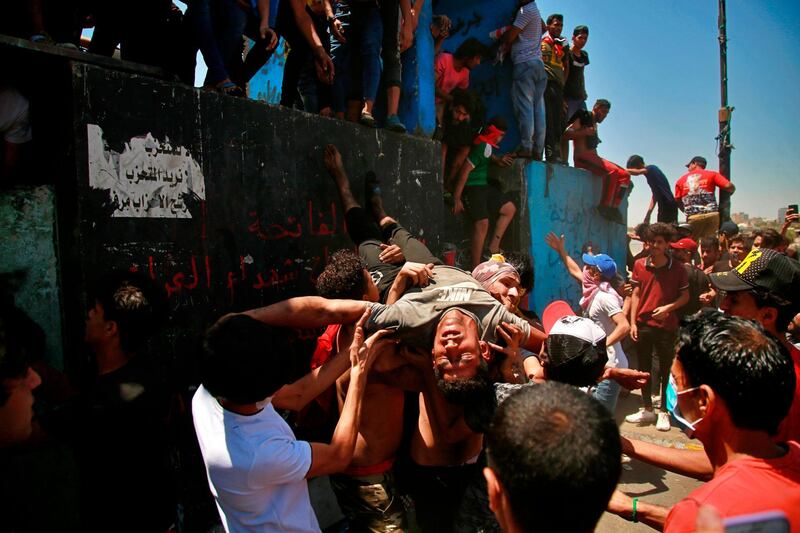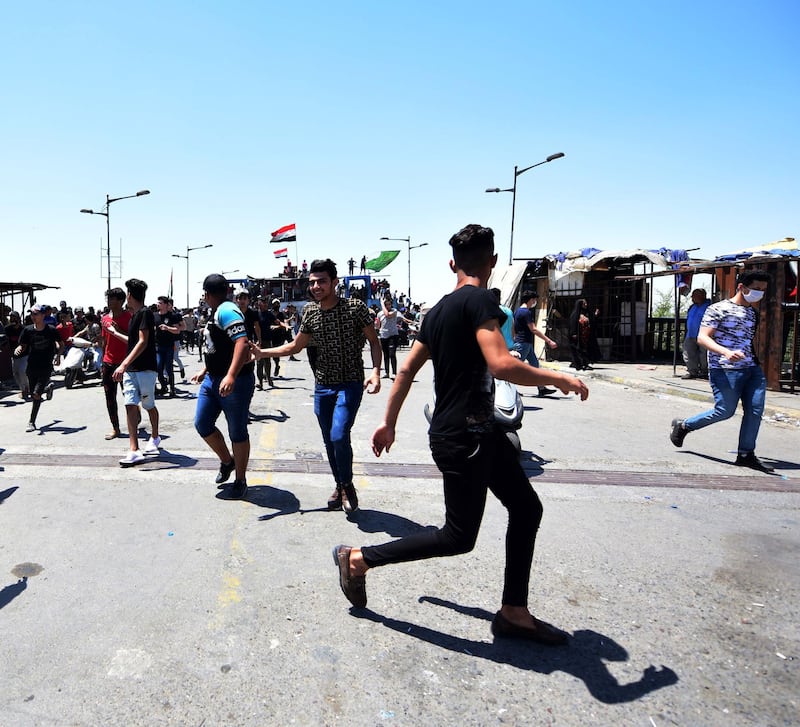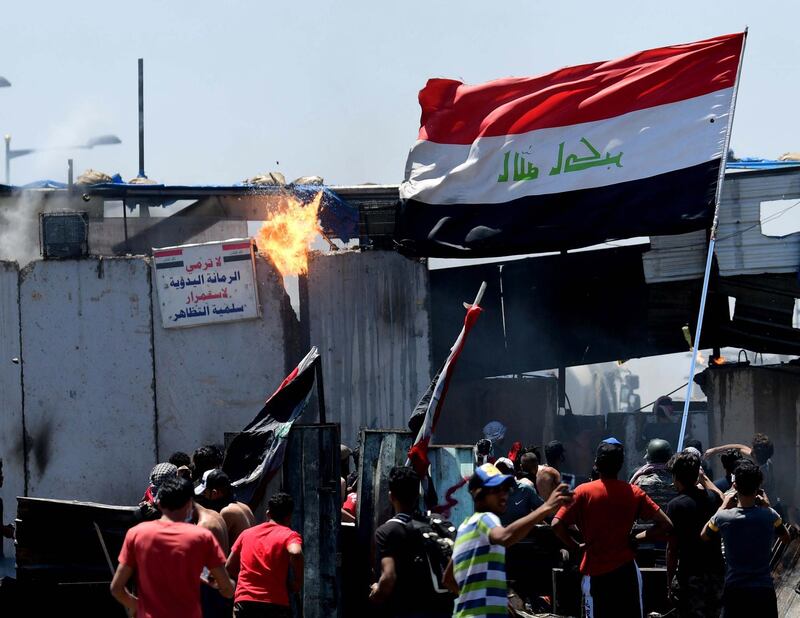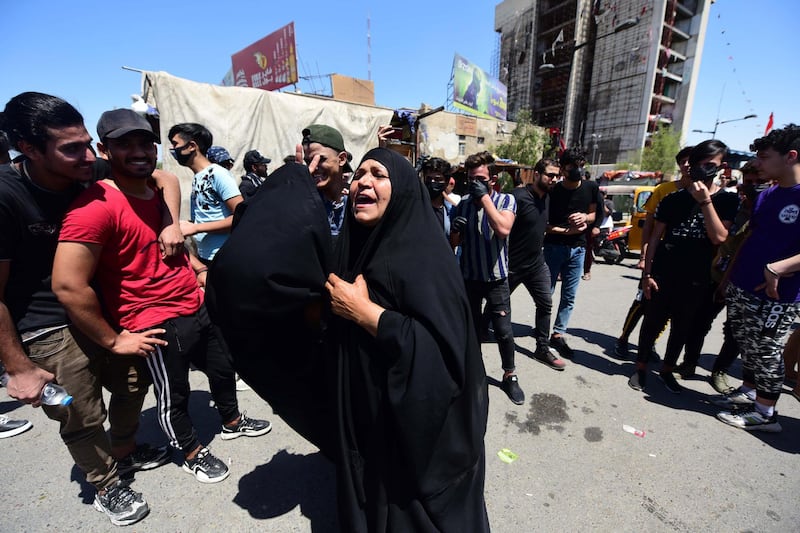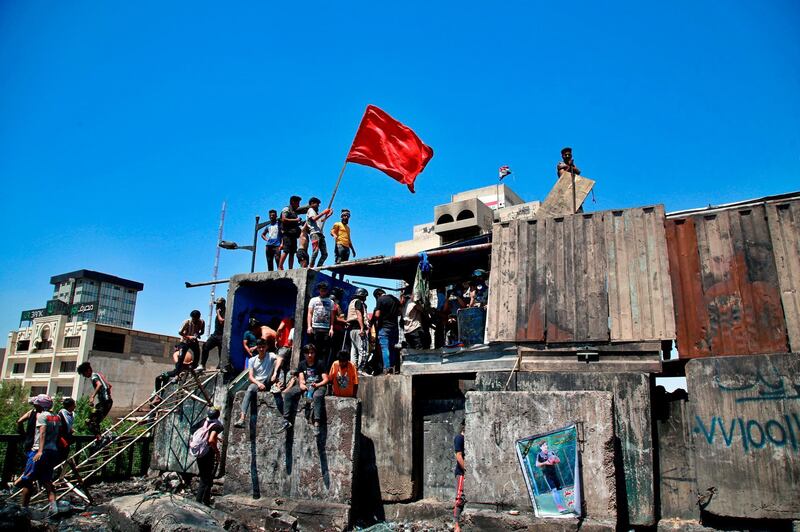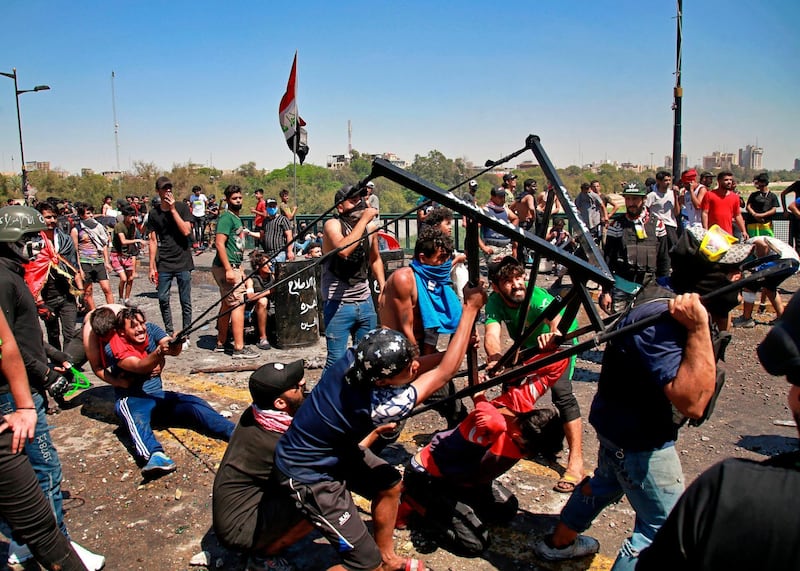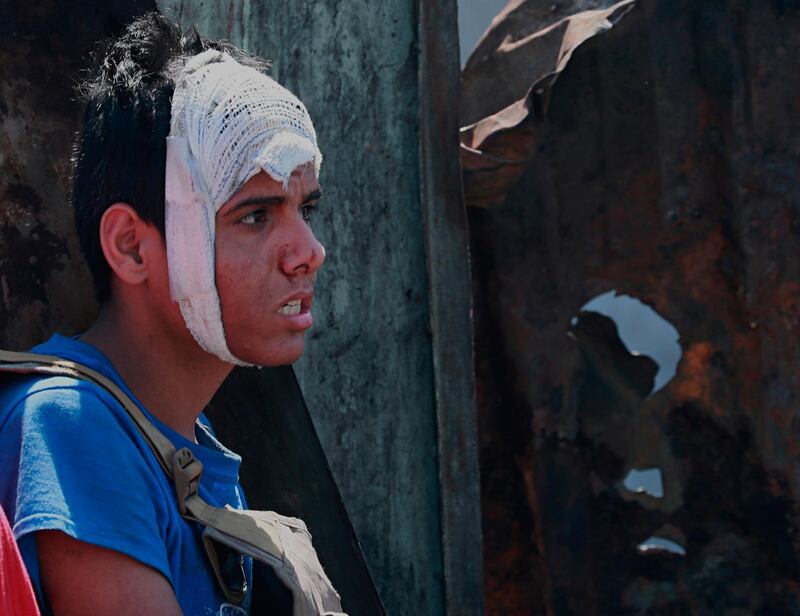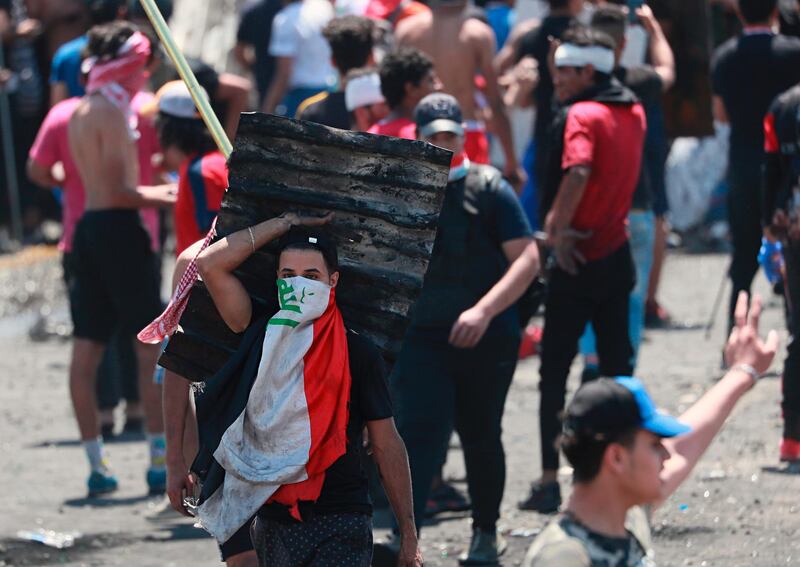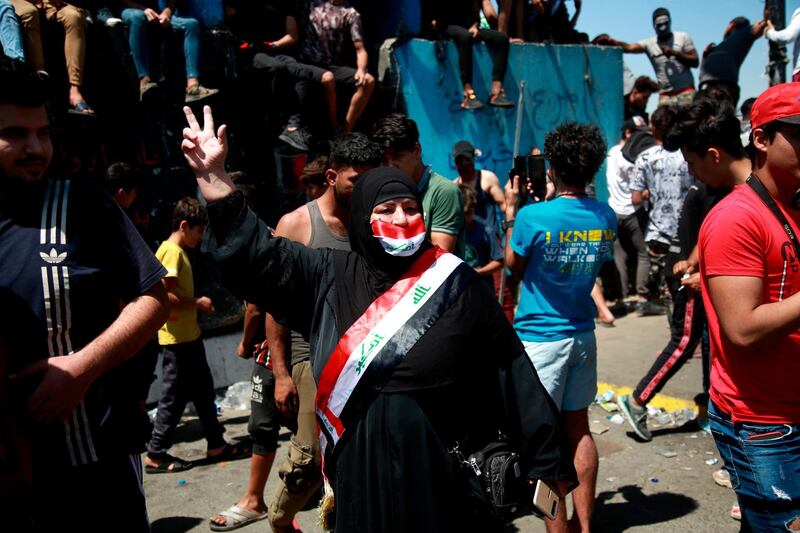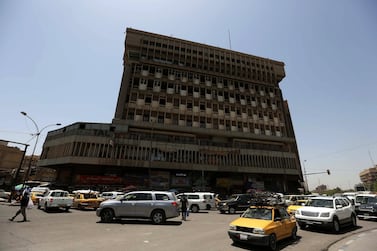Iraqi protesters say the government has not shown “seriousness” in bringing justice for the hundreds of people killed, wounded or kidnapped during anti-government protests that began last October.
Newly appointed Prime Minister Mustafa Al Kadhimi vowed to hold to account all those “who shed Iraqi blood” and to unveil the truth about what happened during the months-long protests.
Anti-government demonstrations erupted in Baghdad and across the south after angry Iraqis took to the streets to vent their frustrations about corruption, lack of employment and poor public services.
The UN said that at least 490 demonstrators were killed and 7,783 injured at protest sites across the country after security forces used live fire and tear gas to disperse the crowds.
Since assuming office, Mr Al Kadimi launched an independent “fact-finding” investigation to hold accountability and promised to release those detained.
However, the protest movement has recently ignited.
“We’ve been listening to press statements from Prime Minister Mustafa Al Kadhimi but we’ve not seen any tangible changes that has satisfied demonstrators on the ground,” said Hassan Wahhab from Baghdad-based human rights group Amal Association.
The movement is looking for serious concrete action to bring perpetrators to justice, he said.
“Until now we’ve not seen those perpetrators identified and we see a lack of seriousness from the government,” Mr Wahhab said during a virtual online session by the The Institute of Regional and International Studies (IRIS).
The government must come up with a new agenda and it has a window of opportunity to meet its promises, he said.
Akeel Abbas, who is Mr Al Kadhimi’s adviser, said the government is young and has many challenges to overcome such as managing the public’s expectations.
“Iraq is supposed to be a democracy, and the state hasn’t met that expectation yet, justifying the use of violence against protesters is a sad reality that must come to an end,” Mr Abbas said.
Setting up strong state institutions and having a government that is interested in building these institutions will help solve this issue, he said.
“But we are not there yet,” he said. “Managing expectations is realistic, there is hope and determination but that takes effort and sacrifice.”
Speaking on behalf of the protesters Mr Wahhab said they “see that human rights is not a priority for the new government.”
Baghdad is using the excuse of the coronavirus pandemic and the financial crisis it faces “to slow the progress of the investigations committee,” he said.
“The government is not serious in finding justice and accountability and the international community must lobby Baghdad to do more,” he said.
